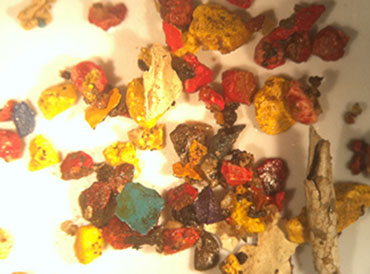Monitoring and understanding microplastics in freshwater
Microplastics are an issue of growing concern as they persist in the environment. The majority of studies to date have been carried out within oceans on marine organisms, but have not looked at microplastics in freshwater. At UKCEH, we are investigating the start of the chain, researching the sources, transport and effects of microplastics in freshwater systems. Our research shows that microplastics can have harmful effects on organisms, hindering their ability to feed, reproduce and defend themselves against predators, with effects likely to vary with different types and sizes of microplastics.
Find out more about our microplastics analysis laboratory service.
Case study: Sampling microplastics in water supplies for UKWIR

UKCEH carried out a study of microplastics for UKWIR, the UK and Irish water industry’s research body, so that it could better understand where and in what quantities microplastic particles exist within wastewater treatment and water supply systems. Scientists carried out sampling at a total of 16 different water company premises – water treatment works and wastewater treatment works – across the country in order to assess how much microplastic material was removed by treatment plants.
They found that water treatment works removed 99.99 per cent of microplastic particles detected prior to treatment, with microplastic particles being quantifiable in drinking water on three out of 39 occasions after the treatment process. They found that wastewater treatment plants similarly removed 99.9 per cent of microplastic particles from wastewater before the treated wastewater was discharged into the rivers.